Winter Home Maintenance Checklist
Spring and fall are usually the times of the year when household projects come to the forefront of our to-do lists and home maintenance projects kick into full gear. However, there are several items in the home that may need your attention throughout the year, with winter being no exception. Use this checklist to help keep tabs on what to monitor these next few months.
Basement floor and walls

Inspect the inside perimeter and secluded areas of your basement for any water seepage. If you have cracks in the floor or walls, clogged downspouts and gutters, or a nonfunctioning or inefficient sump pump, melting snow or heavy rain can enter the basement, potentially causing wood rot or mold growth.
Chimneys
For safety, it’s recommended that you clean your chimney at least once a year to remove blockages and accumulated soot, especially if your fireplace is heavily used. Even if your chimney is rarely used, you’ll still want to inspect it yearly to make sure there aren’t any issues and that animals like birds, squirrels, or raccoons haven’t built nests in it.
Safety devices
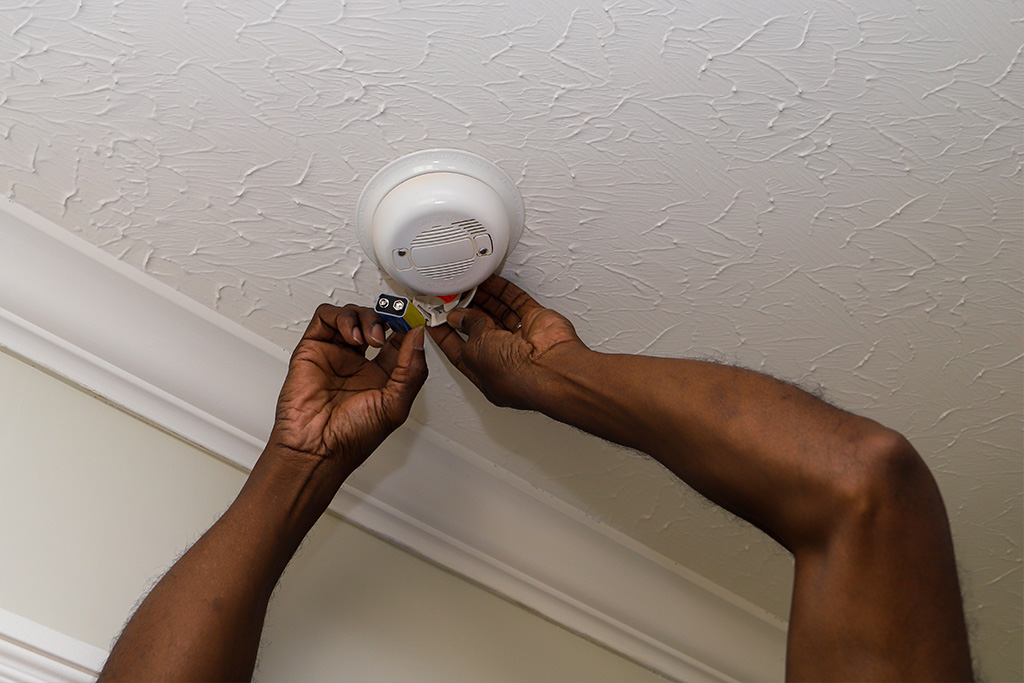
Confirm that all essential life-saving systems are still in working order, including your smoke alarms and carbon dioxide detectors. Check that your fire extinguishers are operational and haven’t expired—and if you don’t have any, be sure to buy some for your home.
Door locks
Depending on your location, cold weather can make it difficult to lock and unlock your doors. It’s a good idea to periodically spray a lubricant like WD-40 into the keyholes during winter to keep them from getting stuck.
Filters
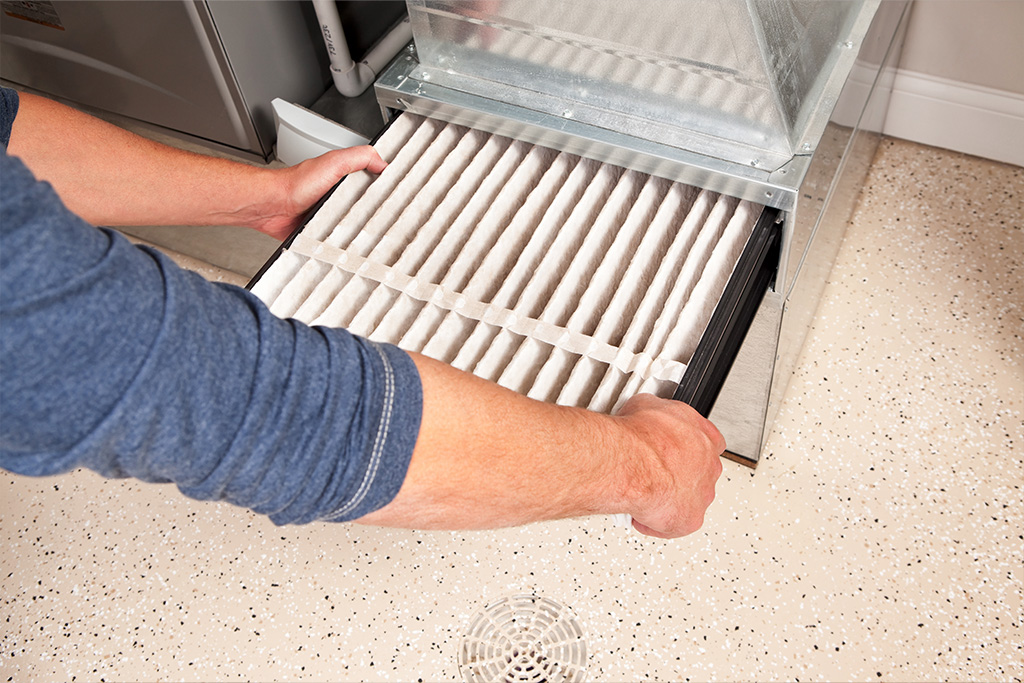
Replace your HVAC air filter every thirty days during the coldest months of the year to help properly maintain the integrity of your home’s air quality. With proper care, you can maximize the life of your HVAC system while consuming less energy and saving money on your utility bills. Midwinter is also a great time to check the furnace filter and clean it as needed; a clean filter will better regulate your home’s temperature.
Garage doors
Test your garage door’s auto-reverse feature to check that the sensors are working since debris can affect the door’s ability to operate properly. Make sure the wheels are well-greased and that the handle can easily open and close the door if the electrical mechanism fails due to snow, ice, or power outages. Also, verify that the garage and driveway have proper water drainage so melted snow or ice does not puddle.
Roof and gutters
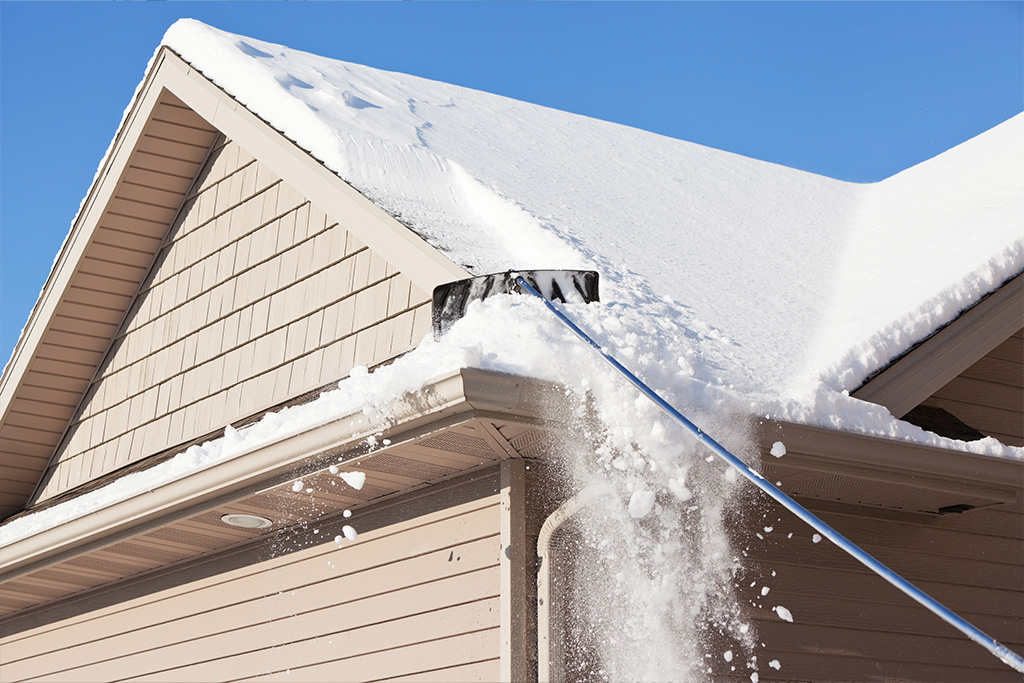
Throughout winter, take the time to inspect your gutters and roof for any damage due to ice dams, fallen tree branches, or overflowing debris in the gutters. Clogged gutters do not allow for proper water drainage, which can cause damage to the roof shingles, including cracks, leaks, or a sagging roof. Finally, if you’ve noticed icicles hanging from the roof or gutters, it could indicate poor insulation, which will need to be fixed to avoid further damage.
Home generator
If you have a home generator, occasionally start it to make sure it’s still working. If your area is prone to a lot of snow, ice, wind, or rainstorms, be sure that there is enough safely stored gasoline so that the generator is ready if a power outage occurs.
Kitchen appliances
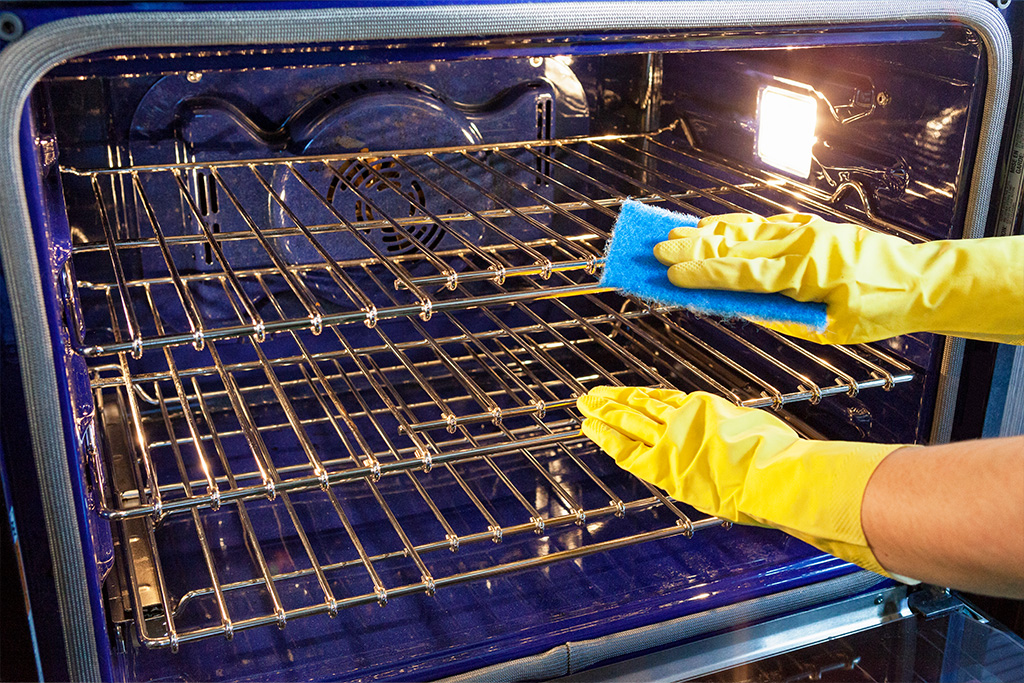
Clean your stove, oven, and stove hood to prevent grease buildup, which could cause grease fires. Be sure to also vacuum and brush your refrigerator’s condenser coils to remove dust, grime, and even pet hair; your refrigerator cannot cool and maintain the proper temperature if it accumulates such things.
Vents and fans
Clean all the vents in your home, including those in your clothes dryer, air return, attic, and soffit. And don’t forget your exhaust vent, which helps the warm air flow out from the roof. Inspect your kitchen stove, attic, bathroom, and whole-house fans for debris buildup, which will help to keep them functioning properly and reduce the chances of a fire. Also, be sure to adjust your ceiling fans to rotate in a clockwise direction at a low speed to force warm air down from the ceiling.
Water heater
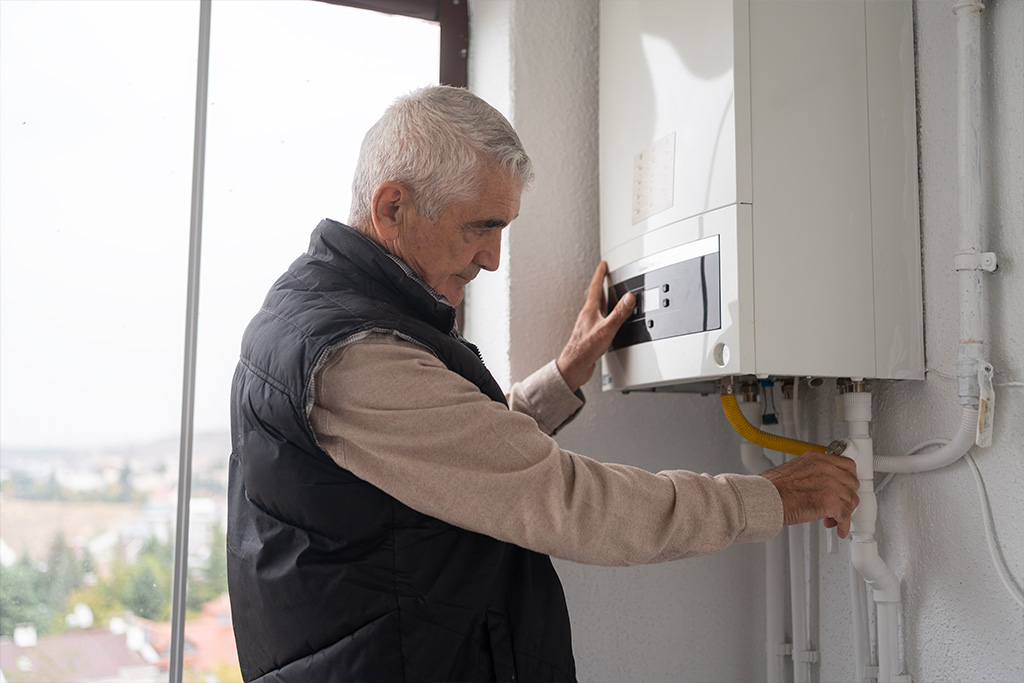
You definitely don’t want your water heater to break down during winter. Be sure to maintain it regularly by monitoring the water temperature and pressure-relief valve, removing any sediment buildup, and thoroughly cleaning and flushing out the unit to ensure that the water runs over the water flow valve. If you have a gas water heater, be sure to check and clean it every year.
Windows
Inspect your home for drafts. If your home feels chillier than usual, it may indicate that your windows are not airtight. Consider installing weather stripping to seal any gaps, and try to keep interior doors open between rooms to help support airflow and increase heat circulation.
Winter can be a demanding time for your home, so consider creating a maintenance checklist to reduce the likelihood of having to do major repairs and to help ensure your home remains in good condition and retains its market value.
